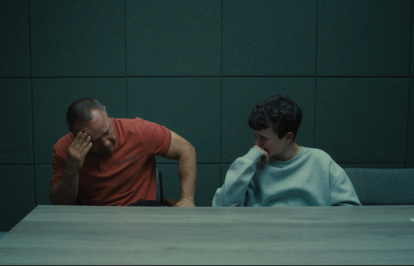Over the past few decades, we’ve seen the rise of the ‘music biopic,’ arguably popularized by 1991’s The Doors. Many of these films have been criticized for becoming formulaic in recent years, and James Mangold’s new biopic A Complete Unknown perfectly plays into that criticism.
The film, which follows singer-songwriter Bob Dylan (played by Timothée Chalamet) from the start of his career in the early 1960s to his controversial electric performance at the Newport Folk Festival in 1965, hits many of the same story beats as other biopics of great musicians. Dylan arrives in the ‘big city,’ and meets folk musician Pete Seeger, who sees his potential. Dylan becomes popular, finds and loses love multiple times, and ultimately ends up with one of the most influential discographies of the 20th century. It’s an interesting story on paper, but the way it’s presented makes the audience feel as though they know how the next scene will end before the current one is even over.
James Mangold’s directing doesn’t help with this either. A Complete Unknown has a tendency to make safe decisions in terms of direction, not encapsulating the interesting personality of its subject. Bob Dylan was a very unique personality in the 1960s, and Chalamet does a great job of embodying him—in part due to his five-year preparation for the role. But Mangold’s directing style doesn’t serve the character well. Most scenes are shot in a very bland way, and when Mangold decides to do something more original, it often ends up more silly than unique. Repeated uses of artificial panning shots in serious scenes take the audience out of the movie entirely.
What stops A Complete Unknown from being completely bland is the performances. Chalamet embodies Dylan nearly perfectly, and Monica Barbaro shines as Dylan’s contemporary Joan Baez. The unequivocal stand-out performance, though, is Edward Norton, as folk singer Pete Seeger.
The other bright spot in A Complete Unknown is the music. Chalamet, Barbaro, Norton, and others all play live on set throughout the film. Highlights include Chalamet and Norton dueting Dylan’s 1964 song “When the Ship Comes In” and Barbaro’s rendition of traditional folk song “House of the Rising Sun.”
The film’s soundtrack tells a story in itself. It starts out with acoustic songs that made Dylan famous such as “The Times They are a-Changin,” and nears the end of the movie with later hits such as “Like a Rolling Stone,” which Dylan was panned by many folk enthusiasts for. The final song on the soundtrack is a return to Dylan’s roots. After being booed off stage at the Newport Folk Festival, he comes back on and performs one last acoustic ballad: “It’s All Over Now, Baby Blue.”
The exceptional acting and noteworthy soundtrack make A Complete Unknown a fun watch, but not necessarily a good movie. Mangold’s directing style is bland and at some points almost silly, and if it weren’t for some excellent performances, A Complete Unknown would’ve completely fallen flat.
This article also appears in our February 2025 print edition.














